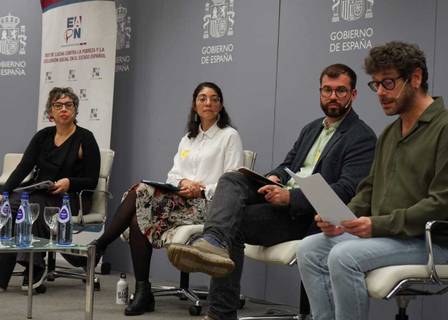
Coherence

The great challenges of our age are complex and multidimensional. Their variables are so interconnected that any real and lasting solution will be holistic and cross-cutting or it will not be.
Against this backdrop, coherence is essential: we need policies where economic, social and environmental instruments feed back into each other to achieve a fairer, more sustainable and democratic society.
At Political Watch we work to help governments, business and civil society better understand the interactions between policies and how their decisions today can affect the well-being and sustainable development of future generations and people living in other countries.
We know that designing and implementing coherent policies is a major challenge, requiring large doses of political will and information. We are working to ensure that lack of knowledge is no longer an obstacle to its achievement.
2030 Agenda for the Sustainable development
The 2030 Agenda is a global roadmap for addressing poverty and the global challenges of sustainable development. With it, the international community has for the first time agreed on a set of common, indivisible and interconnected goals and priorities.
In relation to the 2030 Agenda, coherence implies considering the effects of policies on human well-being from a threefold perspective: on the present generations in one's own territory, on future generations and on people living in other countries.
At Political Watch we ensure (through analysis and citizen monitoring) that countries and territories, in their process of complying with the SDGs, do not generate negative impacts on the sustainable development prospects of other countries, especially developing countries. And so that, as they make progress in meeting the SDGs, they generate positive externalities on other countries and on global public goods.
Trade, investment and development
International trade generates and destroys economic and social opportunities across the globe. It is so large that for developing countries, trade revenues are three times greater than the sum of development aid, debt relief and remittances.
The rules governing international trade are therefore a crucial element in the design of development and anti-poverty policies. They set the limits to the political space available to states to govern in the general interest and their agreements establish the balance between the rights and obligations of public authorities and the private sector. This is why Political Watch works to analyse trade policy and its impact on sustainable development.
For decades, trade liberalisation has been promoted as an end in itself rather than as a tool for achieving the common good. The resulting trade system is tailored to the interests of a few and lacks the mechanisms to manage its impacts on society.
An orderly, balanced and fair multilateral trading system is a global public good that we cannot do without. Its achievement is one of the great unfulfilled promises of the international community so far in the 21st century.
In the field of international trade and foreign investment, Political Watch carries out projects to:
- Understand the implications that trade policy has on the expectations of sustainable development in third countries.
- Analyse the inclusion of the sustainable development approach in international trade and investment treaties.
- Monitor the impact on human rights of investments by Spanish companies in developing countries.
Projects



Open Manifesto Project



Congreso 2030 Paraguay

Escàner ODS Andorra

CGDev annual report

#ColeSeguro

Escáner 2030
Blog

Datos para combatir la pobreza
